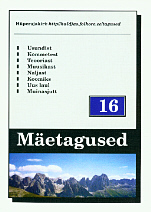Aafrika rahvajutud religioonietnoloogilise uurimisallikana bulsa (Põhja-Ghana) rahvusgrupi pärimuse näitel
African Folk Narratives as an Ethnological Religion Source: On the Example of Bulsa (North-Ghana) Heritage
Author(s): Rüdiger SchottSubject(s): Customs / Folklore
Published by: Eesti Kirjandusmuuseum
Summary/Abstract: The Bulsas are an ethnical group living in North Ghana that speak the Buli language (one of the Gari languages). The article aims to find out to what extent are Bulsa folk narratives used as an ethnological source for religion. The author has recorded Bulsa folk narratives on repeated expeditions to their territories. The stories were recorded on tape in Buli and later translated into English. Relations between what the Bulsas consider real and fiction or of fantasy world are complex and many-layered. The majority of Bulsa fairy-tales of interest for religion ethnology are stories of why some custom is followed (e.g. why girls are not killed at birth). The main Bulsa religious concepts are related to gods of earth (teng) and sky (wen or Naawen), also sacrifice of animals. The word teng has a wide semantic field, denoting land, but also village, in an abstract sense also the origin and cause of things. Teng is not only a self-explanatory act but also the influential religious power: every violation of the customs of ancestors "spoils the land". In Bulsa stories, God is connected with fate. God has unlimited power over the lives of people while no person has the right over the life of another one. There is no happy ending in Bulsa stories, almost every mistake and oversight is punished with death.
Journal: Mäetagused. Hüperajakiri
- Issue Year: 2002
- Issue No: 16
- Page Range: 39-69
- Page Count: 31
- Language: Estonian

